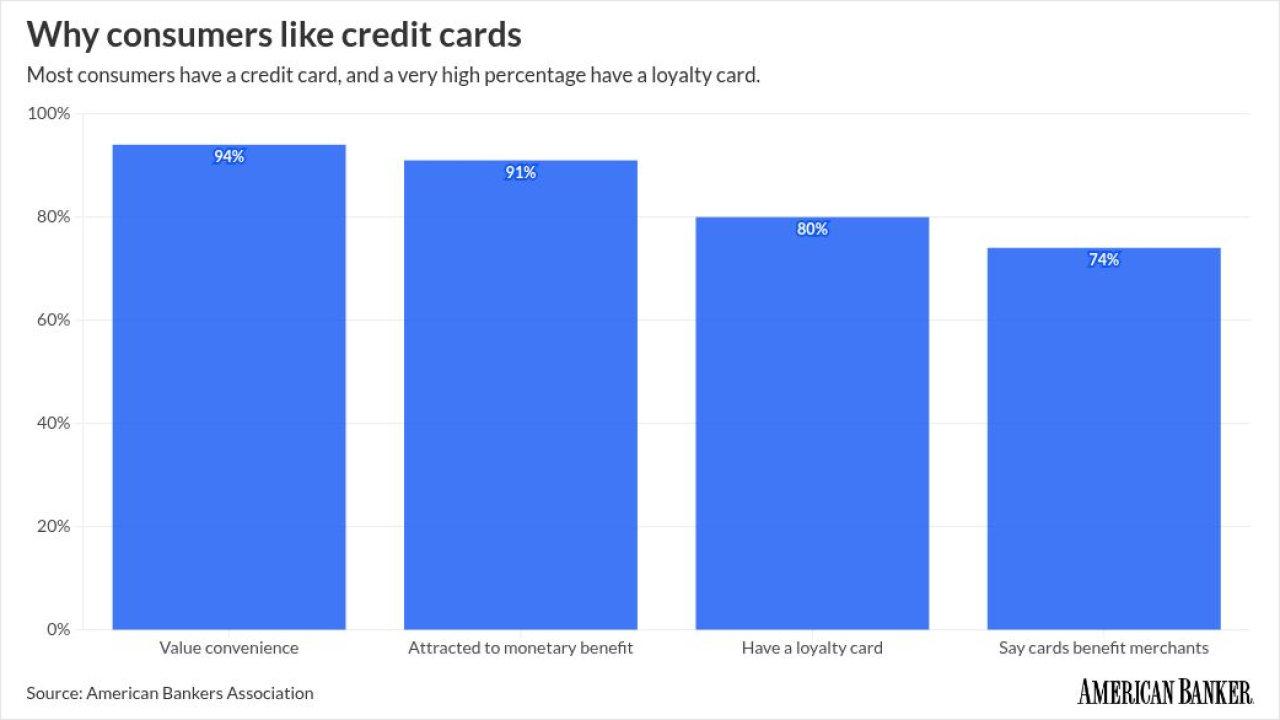In 1998 James R. Allen and his colleagues at the Louisville, Ky., brokerage Hilliard Lyons Inc. needed to find a merger partner.
The bull market was heading higher, and the firm's competitors were getting larger by selling to deep-pocketed U.S. commercial banking companies that could afford to buy the technology needed to keep up with investor demands.
Hilliard Lyons didn't need to look long. Regional banking companies were clamoring to buy brokerages as a way to compete with their own larger bank and nonbank competitors. These banking companies hoped that buying a brokerage would bring them the investment banking skills that could attract and retain corporate banking customers.
The 147-year-old Hilliard found a willing suitor in PNC Bank Corp., the Pittsburgh company now known as PNC Financial Services Group Inc.
The brokerage brought 700 brokers to PNC and ballooned its sales force to 1,000. Hilliard also brought a more affluent customer base - investors with more than $500,000 of investable assets - than that targeted through PNC's retail branches.
PNC's acquisition of Hilliard was one of a slew of bank-brokerage acquisitions that year. While the deals got off to mixed starts - retention packages and cultural conflicts elevated integration costs and efforts in several notable cases - the years since have shown that the theory behind them was sound.
The combination of banks' powerful balance sheets with the retail prowess and relationship management sophistication of brokerages has yielded substantial benefits for buyers and sellers much sooner than could have been expected through internal growth.
First Union Corp., which was facing the prospect of a five- to 10-year project to build a national brokerage operation, abandoned the "do-it-yourself" approach and purchased Wheat First Butcher Singer of Richmond, Va., in 1998.
Like PNC, First Union, of Charlotte, N.C., already had a branch-based brokerage sales system in place, it and had made a couple of smaller acquisitions, but it wanted to make a bolder move in the business.
The Wheat deal "was the first real statement of what we were doing," said Donald A. McMullen Jr., a vice chairman of First Union. "It was a big regional firm."
A year later the company bought Everen Securities of Chicago, and it followed that up with two more deals. First Union Securities, the division that houses that string of brokerage acquisitions, now employs 7,750 brokers, making First Union the sixth-biggest brokerage operation in the country by number of investment advisers.
One of the early lessons was how far to go in integrating the new businesses.
After the ink had dried, all the banks had to decide how to deal with blending two distinct ways of doing business. "Brokerage and investment firms tend to have a flat organizational structure and at PNC and Hilliard Lyons there was a clear recognition of that," said Mr. Allen, a 20-year veteran of Hilliard.
It was important to find a buyer "who wanted to make us the primary investment and brokerage platform," he said.
For Hilliard, that wasn't a problem. David Toth, a senior vice president and director of marketing at PNC, said that even though it already had a brokerage operation, it was rooted in the banking company's branch system and targeted markedly different customers than Hilliard.
But Katrina Blecher, an equity analyst with Sandler O'Neill & Partners in New York, said there was another problem for banking companies looking to buy brokerages. "Banks were seen as bad payers," so they had to create retention pools to keep the talent from bolting, she said.
Both PNC and First Union said the retention packages paid out to employees of the brokerages they bought helped them retain the personnel they wanted to keep. However, But Mr. McMullen said: "Retention is nice, but that's not why the brokers stayed with us. They said, 'Don't change our culture. Let us live where we live.' We didn't leave them alone, but we didn't change their culture. I think that's why the brokers stayed with us, not because of the retention package."
The pace of brokerage acquisitions in the late 1990s was indeed hectic, set as it was against a backdrop of consolidation among commercial banking companies.
In 1998 alone at least 10 banking companies made deals for regional brokers. This caused some observers to wonder at the time just how they would all play out, as banks tried to meld their hierarchical structures with the brokerage industry's more entrepreneurial style.
Matt Snowling, an equity analyst with Friedman Billings Ramsey & Co., itself an independent regional firm, said that fronting up big retention packages did not always guarantee that the banks would be able to hold on to all the talent they wanted.
Bank of America Corp. may have found that out the hard way. After the old BankAmerica Corp. agreed to sell itself to NationsBank Corp. in the spring of 1998, it sold Robertson Stephens, which it had bought the year before; NationsBank already owned Montgomery Securities, a San Francisco company it had bought the previous year.
Robertson Stephens ended up with three bank owners in just over a year. The brokerage was sold in August 1998 to BankBoston Corp., which Fleet Financial Group bought in October 1999 to form FleetBoston Financial Corp.
Once the BankAmerica/NationsBank deal closed in September, Thomas W. Weisel, who had founded Montgomery Securities 27 years previously and sold it for $1.2 billion, bolted and took a lot of bankers with him to found his own company bearing his name. Meanwhile, SunTrust Banks Inc. of Atlanta, which bought Equitable Securities, a Nashville securities company, struggled to make that purchase work, according to analysts. This year SunTrust bought the capital markets business of Robinson-Humphrey Co. from Citigroup Inc., which had kept it separate from its Salomon Smith Barney operation.
"The jury is still out on a lot of these acquisitions," Mr. Snowling said. "Some of them suffered in the implosion of the technology market. Right now they're suffering from the slowdown in the capital markets."
And though there have no major divorces - regionals looking to go back out on their own - it's not completely out of the question, he said. "That's a possibility. It's tough to say who and when, but some of these commercial banks can't justify the investment."
First Union's Mr. McMullen said that the proof of a deal's viability is in the numbers. Not only has First Union managed to retain the people it wanted to keep from Wheat First, but it has hired another 700 brokers since that deal closed, he said.
Clearly First Union could not have built that kind sales force internally with the same speed, Mr. McMullen said. "We are now a national brokerage in 47 states. That would have been a five-to-10-year build. It would have been difficult."
And brokerage is a profitable business for First Union. In the second quarter it produced 39% of the $113 million of operating earnings produced by the company's capital management unit, which incorporates brokerage and asset management. Last year the capital management unit contributed 27% to the top line at First Union, and Mr. McMullen hopes it will eventually kick in 40% a year.
"We think brokerage is a good business" by itself, but it also presents other opportunities, Mr. McMullen said. However, he shied away from the using the term "cross-selling," which he said can put too much pressure on the broker to sell something.
"What brokerage does is create relationships with clients," he said. "It helps embellish other areas, and it allows us to access customers at the appropriate time."
In 1998 KeyCorp acquired McDonald & Co., a local investment banking company. Like PNC does with Hilliard, Key operates the brokerage, now named McDonald Investments Inc., as a wholly owned unit of the banking company.
Executives from the two companies said their familiarity with each other, and that they were both based in Cleveland, made things easier.
"We think it's been a very smooth integration, which was helped by the fact that both of our companies knew each other," said Chris Gorman, a senior managing director at McDonald who has been with the brokerage since 1991. "Key has long had a meritocracy, and pay-for-performance was always their approach," so its philosophy meshed well with McDonald's, he said.
For KeyCorp, one of the real benefits of the acquisition was gaining access to a solid investment banking business that it could offer to an established roster of corporate banking clients. McDonald, which employs 108 investment bankers and 700 brokers, has had success in the real estate, technology, health care, and structured finance sectors.
Helen France, a senior vice president and senior corporate relationship manager at KeyCorp, said companies like TRW Inc. and American Electric Power had established credit relationships with Key, which was now able to go back to them and solicit investment banking business.
McDonald recently advised on the divestiture of a TRW operating unit, and it is now working on a second, a spokesman said. The brokerage has also participated in the company's last three global fixed-income offerings.
Meanwhile, the brokerage has been the sole manager for an American Electric fixed-income offering, and it has participated in several others. McDonald has also been given the mandate to divest one of American Electric's operating units, the spokesman said.
Ever since the capital markets began to sputter last year, commercial banking companies have been able to wield their balance sheets in the competition to underwrite the dwindling number of initial public offerings up for grabs.
"You look at the league tables, and you're able to divide those that don't presently have a balance-sheet capability from those that do," Mr. Gorman said.
While all the above-mentioned banking companies say they were not motivated to make their acquisitions by the roaring stock market of the late 1990s, the pace of purchases has slowed as the stock market has faltered.
Deals like the $625 million one for Tucker Anthony Sutro of Boston announced last week by Royal Bank of Canada are scarcer these days. "I do think the appetite has faded, because most of the big banks have done deals," Ms. Blecher said.
But the small group of independent firms still standing could be quite vulnerable as their stock prices weaken along with the waning stock market.
Mr. McMullen said he believes that the competition will only get more intense for independent firms that lack the product breadth consumers now demand from their financial services institution.
"We think the bar is going to continue to be raised in the next few years," he said. "You're going to want your financial adviser to offer you a lot of products. If you don't have the technology, and maybe if you have lived a little bit too much for the favorable market, it's going to be tough."

Source: American Banker





